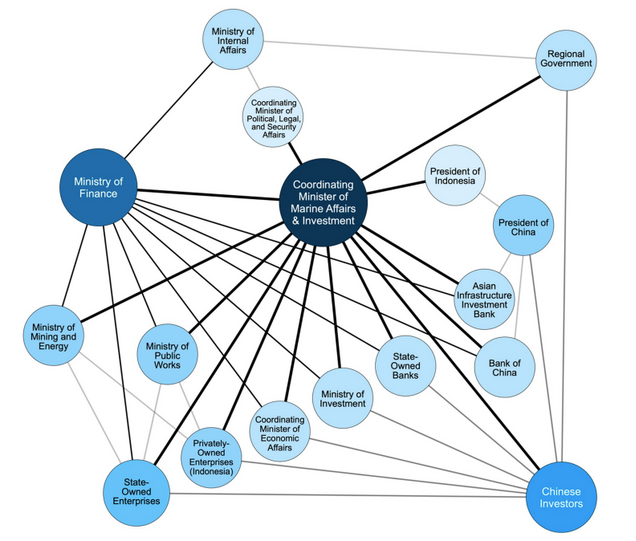Mitigating Social‑Ecological Risks From the Surge in China’s Overseas Investment: An Indonesian Profile

The next decade will be a critical period for global sustainable development. China’s Belt and Road Initiative (BRI) promises to help countries reach their national goals for economic growth, trade and development, but widespread concerns remain over how this boom in Chinese foreign direct investment (FDI) will impact social-ecological systems.
A new journal article co-authored by a team of researchers at the University of Indonesia Research Center for Climate Change (RCCC) and the Boston University Global Development Policy Center (GDP Center) discusses the risks implicit in BRI-related FDI projects to ecosystems and local communities and how these risks can be mitigated or exacerbated by national governance of BRI projects and national development policies. Published in Discover Sustainability, the study focuses on Indonesia, where convoluted governance of some of the largest Chinese FDI projects may reduce accountability and where a recent job creation law brings risks of rapid unsustainable development practices across this biodiversity hotspot.
Main findings:
- For the last decade, Indonesia-China relations have intensified, particularly through trade, finance and investment. With a lack of infrastructure impeding Indonesia’s global economic competitiveness, this new wave of BRI funding is expected to significantly contribute to Indonesia’s national development goals.
- Since 2016, China has been an important trading partner with Indonesia for both exports and imports and China’s two policy banks have financed $14.5 billion worth of development projects in Indonesia’s power and transportation sectors since 2008.
- The study considers several risks to biodiversity and local communities from vegetation loss, pollution and other stressors associated with 14 BRI-affiliated FDI projects in Indonesia, including projects in Sumatra, Java, Bali, Borneo, Sulawesi, East Nusa Tenggara, Maluku/the Mollucas and Papua.
- The surge in coal-fired power plants associated with the BRI presents several environmental and health challenges. Likewise, extractive industries and infrastructure development threaten local endangered species.
- The geographic and economic scale of the projects present several social risks, including corruptive behavior in the implementation of new projects.
- As a country facing the “middle-income trap,” the researchers argue it is clear Indonesia does need leverage to push the country forward to improve its GDP and economic growth, which the BRI scheme is expected to do.
- Coordination within the national government may not be effective in managing the implementation of BRI projects. The overlapping authority among coordinating ministries weakens the controls and increases the risks for fraudulent misconduct in the entire governance process (see Figure 3 below).
- New policies in Indonesia raise the critical issue of how to ensure robust and accountable governance of development—a principle that appears to be lacking in the governance of Indonesian BRI projects. In 2020, the lawmakers at the House of Representatives agreed to pass the Omnibus Law. This new law amended more than 1,200 articles stipulated in 78 sectoral laws, including environment, forestry, fisheries, investment, land affairs and spatial planning.
- Though seemingly positive, the introduction of a new Omnibus Law could reduce the due diligence necessary to prevent perverse outcomes from development activities on people and nature, emphasizing the critical role of domestic economic and environmental policies in delivering a ‘green’ BRI.
- Within Indonesia, the researchers argue there must be a concerted research effort to illuminate the realized consequences of development on biodiversity, local and Indigenous communities and regional economies through the quantification of land use/land cover change, air and water pollution, carbon emissions and other stressors, which can be used to weigh potential costs with purported benefits.
Figure 3: BRI Financial Inflows to Indonesia

If adequately managed, the researchers argue the BRI and its accompanying investments may bring an unparalleled boost to economic growth and human wellbeing across the developing world. But as significant as these potential benefits are, so too are the potential risks from the same investments if managed poorly. Environmental damage from slipshod infrastructure and investment can devastate ecosystems, as well as the communities and economies that depend on them.
While the present perspective focuses on one country where these risks and benefits come together in particularly strong ways, the example holds policy lessons for all countries along the BRI. Now more than ever, BRI countries have the ability—and thus, the responsibility—to determine their own outcomes by ensuring that their national standards and practices are adequate for the task.
Read the Journal Article Read the Blog